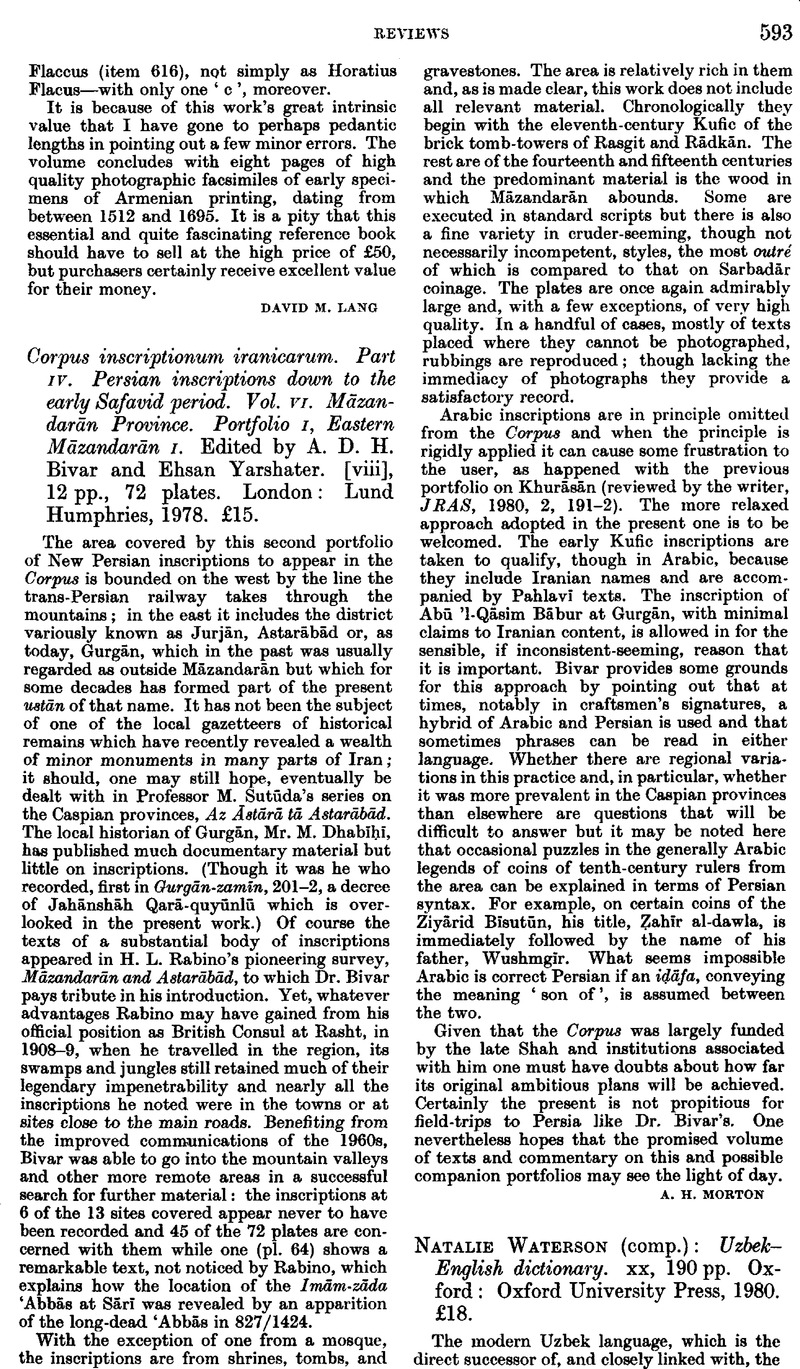No CrossRef data available.
Article contents
Natalie Waterson (comp.): Uzbek-English dictionary, xx, 190 pp. Oxford: Oxford University Press, 1980. £18.
Published online by Cambridge University Press: 24 December 2009
Abstract

- Type
- Reviews
- Information
- Bulletin of the School of Oriental and African Studies , Volume 44 , Issue 3 , October 1981 , pp. 593 - 596
- Copyright
- Copyright © School of Oriental and African Studies 1981
References
1 The examples of usage in the majority of cases consist of simple sentences which have neither idiomatic nor syntactical importance. Nouns: he is a leader, honey is sweet, the crane is flying. Adjectives: he is mad, his father is rich, this pillow is soft. Verbs: the fire is smoking, he is knitting a sock, the water is flowing. For a student of Uzbek who, after having acquired a basic knowledge of grammar from, say, the grammatical sketch of Poppe's Reader, which contains a glossary of some 3,000 words, turns to this dictionary, these examples of usage will be superfluous.




